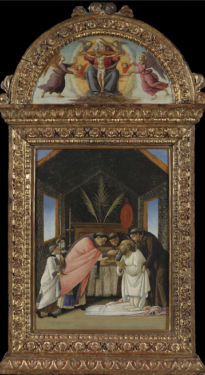
I am hoping that what unifies and ties together this series of columns is my attempt to use insights from philosophy to deepen religious faith. It strikes me that the philosophy of Gabriel Marcel can help in this effort. One key to grasping the philosophical vision of existentialist-personalist Gabriel Marcel is the notion of communion. My understanding of what Marcel meant by communion is a deep love relationship between two or more people. I don’t think it is an exaggeration to say that Marcel believed that communion was the reason God created us. The meaning of our existence is that we are called to communion, that there is a deep need in our very being for communion. A slightly different way of articulating the same truth is to say that we are created in order to love and to be loved.
Another way of entering into Marcel’s philosophy, and perhaps gaining some insight into what is meant by ontological communion, is to contrast Marcel’s insight into the mystery of the human person with the philosophical vision of atheist existentialist Jean-Paul Sartre. In some ways, Marcel’s vision seems the exact opposite of Sartre’s. In philosophy classes at St. John’s University I tell students that the more deeply they understand Sartre’s philosophy, the more deeply they may understand Marcel’s philosophy. In his excellent essay entitled “From Problem to Mystery” in Commonweal (March. 2020), Steven Knepper writes the following:
“Marcel claimed that we have an ‘ontological need’ for communion with others and that modern ills result from this need going unmet. On this point, Marcel disagreed sharply with the Sartre of ‘Being and Nothingness.’ For Sartre, the relationship with the other was usually agonistic if not overtly antagonistic. Marcel acknowledged that there was much truth in Sartre’s deft analyses of how the other makes limiting claims and projects that we can adopt in ‘bad faith’. Indeed, Marcel’s own plays are full of characters who consciously or unconsciously manipulate others for self-serving ends. Still, Marcel was wary of how Sartre — and modern philosophy more broadly — gave priority to conflict. Marcel recognized Sartre’s skill at uncovering hypocrisy and hidden motives, but warned that such suspicion easily hypertrophies so that love and gratitude become mere ciphers for desire and ingratiation.” (p. 21)
One of the most important insights that Marcel, and I think other personalist philosophers such as Emmanuel Mounier, Martin Buber, and W. Norris Clarke, S.J. also had, is what is called the “ontological need” for communion, which is another way of saying that built into the being of a human person is the need to love and to be loved. God has created human persons with this need. In his book “Personalism” (University of Notre Dame Press: Notre Dame, 1952, pp. 132) Emmanuel Mounier states the insight this way:
“This communion of love, in liberating him who responds to it, also liberates him who offers it. Love is the surest certainty that man knows; the one irrefutable, existential cogito: I love, therefore I am; therefore being is, and life has value…” (p. 23)
The central role that love and being loved unveiled in the philosophy of personalism is exciting and awesome. I believe it may be one of the two or three most important truths that philosophy can reveal about the human person. c
I am almost scrupulous about not allowing my Christian faith to enter into philosophical discussions in class. At the beginning of every course, I stress that the course should be able to be taken by everyone, without any religious pre-requisites. The reason the course can be taken by anyone is that the course is not based, as a theology course would be, on some supernatural revelation from God. Every philosophy course I teach is based on the human experience. The only two prerequisites are that the student is a person and is willing to think about human existence.
While I never allow my own religious faith to directly enter a class lecture or discussion, great philosophy has deeply influenced my faith. When some brilliant thinker helps me to see more deeply into some truth about the human person or about God, those insights can shed light on my faith. While I find philosophy challenging, I don’t think it has ever weakened my faith. Recently a friend, who claims he has lost his faith, told me that this happened to him when he moved out of a closed Catholic world and heard new ideas that challenged his faith. I can understand how this might happen but it has not been my experience. Even studying the most influential atheistic philosophers I think has been a benefit in my life as a philosopher and priest.
I think that every philosophical insight that Marcel had into the mystery of person and the mystery of being is infinitely enriched when looked at through the light of Christian faith.
Father Lauder is a philosophy professor at St. John’s University, Jamaica. He presents two 15-minute talks from his lecture series on the Catholic Novel, every Tuesday at 9 p.m. on NET-TV.
